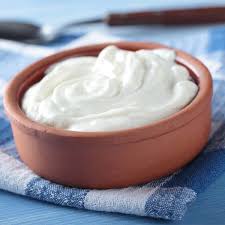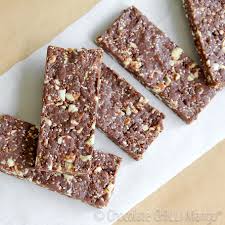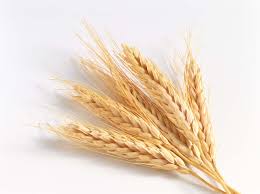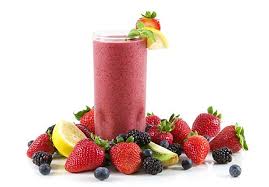Top 10 Most Overrated Health Foods
1. Yogurt

There is nothing innately wrong with yogurt, the natural product. But the real stuff is not nearly as easy to find as the hyper-sweetened dessert versions filling supermarket shelves. Though yogurt can contain beneficial probiotics, friendly bacteria are also present in other fermented foods like sauerkraut, kimchi and miso. And if you are worried about acne, dairy is probably not your best choice.
Oh, and the overratedness is doubly true of frozen yogurt.
If you’d rather keep yogurt as your breakfast staple (something I’m certainly not opposed to), go for plain yogurt that is either full or low-fat. Don’t fall for the vanilla trap, it is not plain and has even more sugar than most fruit versions. You need some fat in your yogurt so you can absorb the fat-soluble vitamins present.
2. Soy

Soy is another one of those foods that can be perfectly healthy, but can also be processed into oblivion until it’s an unhealthy product. Hydrogenated soy oil is among the most common sources of trans fat. Processed products are often touted as healthy just because they contain soy, but evidence suggests soy is not exactly the health panacea it is often made out to be. For a healthier version, stick to fermented soy products like miso, natto or tempeh.
3. Egg whites

It baffles me that Americans continue to vilify the most nutritious part of the egg while glorifying the less impressive half. Sure egg whites are a good source of protein on their own, but you’re probably not lacking protein and would likely benefit from the rich nutrients of the entire egg.
4. Margarine

Why we need a man-made source of processed oils when there are so many naturally healthy sources of fat is beyond me—that is assuming you can even find margarins that do not contain hydrogenated oils/trans fats. If you really want more stanols and sterols in your diet try eating more nuts, avocados and vegetables.
5. Bananas

Though I have a bit of a reputation for picking on bananas, I really don’t think they’re all bad and they definitely taste yummy. My biggest problem with them is that they are one of the most calorie dense fruits you can buy, and most of us don’t need all that extra sugar from a “health” food.
6. Fake meat

Next time you get a chance, check out the ingredients in your favorite meat substitute. It’s usually a lot of gluten, some processed soy, canola oil, corn starch, and a few bizarre ingredients like “natural vegetarian flavors” (mmm…. vegetarians). Call me crazy, but real meat sounds a lot more appealing.
7. Protein bars

Remember back in the day when PowerBars tasted like crap? Well they would all still taste that way if manufacturers didn’t fill them with sugar or fake sugar substitutes. Look at the ingredients, the vast majority of protein bars are the same processed junk that’s in everything else, just with a few more vitamins, some added soy protein and possibly some added fiber. Adding nutrients to junk food does not a health food make.
8. Whole grain flour

Ah, whole grains, how controversial be thy name. Though I’m not as anti-grain as some folks, I don’t pretend that highly processed “whole wheat flour” is actually good for me. Grains that don’t look like grains are not your friends.
9. Low-fat salad dressing

Fat is good for you.
Yes, fat contains more calories than protein or carbohydrates, but it also enables you to absorb more vitamins from the foods you eat and makes your meals more satisfying. Fat-free dressings do not make you healthier, they make your salad less nourishing.
10. Fruit juice

I’ve explained before how I’ve warmed up to vegetable/green juices, but I still have trouble condoning even fresh squeezed fruit juice as a health food.
Juicing fruit concentrates the sugar while stripping out the filling fiber. When you remember that one 450 ml bottle of orange juice is equivalent to six whole oranges, you can start to see where the problem is.
There is nothing innately wrong with yogurt, the natural product. But the real stuff is not nearly as easy to find as the hyper-sweetened dessert versions filling supermarket shelves. Though yogurt can contain beneficial probiotics, friendly bacteria are also present in other fermented foods like sauerkraut, kimchi and miso. And if you are worried about acne, dairy is probably not your best choice.
Oh, and the overratedness is doubly true of frozen yogurt.
If you’d rather keep yogurt as your breakfast staple (something I’m certainly not opposed to), go for plain yogurt that is either full or low-fat. Don’t fall for the vanilla trap, it is not plain and has even more sugar than most fruit versions. You need some fat in your yogurt so you can absorb the fat-soluble vitamins present.
2. Soy
Soy is another one of those foods that can be perfectly healthy, but can also be processed into oblivion until it’s an unhealthy product. Hydrogenated soy oil is among the most common sources of trans fat. Processed products are often touted as healthy just because they contain soy, but evidence suggests soy is not exactly the health panacea it is often made out to be. For a healthier version, stick to fermented soy products like miso, natto or tempeh.
3. Egg whites
It baffles me that Americans continue to vilify the most nutritious part of the egg while glorifying the less impressive half. Sure egg whites are a good source of protein on their own, but you’re probably not lacking protein and would likely benefit from the rich nutrients of the entire egg.
4. Margarine
Why we need a man-made source of processed oils when there are so many naturally healthy sources of fat is beyond me—that is assuming you can even find margarins that do not contain hydrogenated oils/trans fats. If you really want more stanols and sterols in your diet try eating more nuts, avocados and vegetables.
5. Bananas
Though I have a bit of a reputation for picking on bananas, I really don’t think they’re all bad and they definitely taste yummy. My biggest problem with them is that they are one of the most calorie dense fruits you can buy, and most of us don’t need all that extra sugar from a “health” food.
6. Fake meat
Next time you get a chance, check out the ingredients in your favorite meat substitute. It’s usually a lot of gluten, some processed soy, canola oil, corn starch, and a few bizarre ingredients like “natural vegetarian flavors” (mmm…. vegetarians). Call me crazy, but real meat sounds a lot more appealing.
7. Protein bars
Remember back in the day when PowerBars tasted like crap? Well they would all still taste that way if manufacturers didn’t fill them with sugar or fake sugar substitutes. Look at the ingredients, the vast majority of protein bars are the same processed junk that’s in everything else, just with a few more vitamins, some added soy protein and possibly some added fiber. Adding nutrients to junk food does not a health food make.
8. Whole grain flour
Ah, whole grains, how controversial be thy name. Though I’m not as anti-grain as some folks, I don’t pretend that highly processed “whole wheat flour” is actually good for me. Grains that don’t look like grains are not your friends.
9. Low-fat salad dressing
Fat is good for you.
Yes, fat contains more calories than protein or carbohydrates, but it also enables you to absorb more vitamins from the foods you eat and makes your meals more satisfying. Fat-free dressings do not make you healthier, they make your salad less nourishing.
10. Fruit juice
I’ve explained before how I’ve warmed up to vegetable/green juices, but I still have trouble condoning even fresh squeezed fruit juice as a health food.
Juicing fruit concentrates the sugar while stripping out the filling fiber. When you remember that one 450 ml bottle of orange juice is equivalent to six whole oranges, you can start to see where the problem is.








0 comments:
Post a Comment